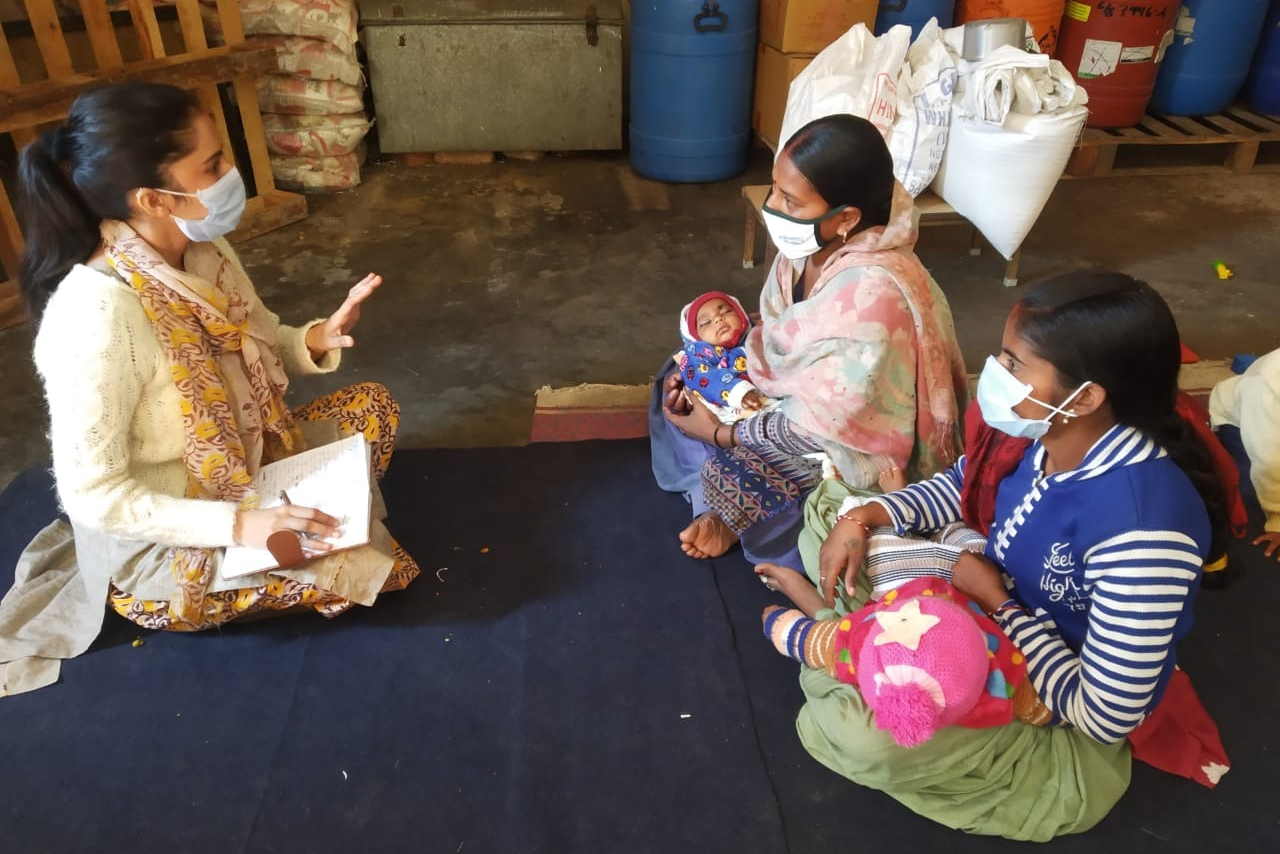Qualitative improvement in Maternal and Child Healthcare Services

The National Family Health Survey (NFHS) – 5 data of year 2019-20 for Ranga Reddy district of Telangana presents. certain glaring findings that indicate the critical need of scaling up quality community-based health care initiatives in the district. Some of these findings1 are listed below:
- 14.2% of children under the age of 12-23 months are not fully immunized
- Only 26.6% mothers consumed iron folic acid tablets for 180 days or more when they were pregnant
- Around 5% of the antenatal care (ANC) mothers are still not reached for the check-up during their first trimester
- About 25% of the mothers still do not complete 4 ANC visits
The Humana People to People India’s project for ”Strengthening Community based Healthcare Services for Mothers and Babies” and its members have played a major role in the Ranga Reddy District in Telangana. According to the District Health and Medical Officer Dr. Damodar HPPI has qualitatively improved the Mother and Child Health services i.e., the registration of pregnant women for antenatal and postnatal check-ups and ensuring preferential normal deliveries in the entire Shadnagar division of the Ranga Reddy district.
During the entire pregnancy period in which the pregnant women require support, the HPPI health project team worked closely with the 5 PHCs of the Shadnagar division. The project staff is well qualified and trained and has played a key role in health awareness of the community, motivating the patients towards seeking institutionalised treatments through PHCs and counselling the pregnant women and their caretakers. Even post-delivery, the staff conducts regular home visits in counselling and mobilising the mothers about timely vaccinations.
Apart from the health awareness and community mobilisation activities, the project is also organising training programs for ASHAs and ANMs in all the PHCs of Shadnagar division. This is very helpful for all the community health workers of our division in building their capacity and in helping them provide quality services to the residents of the villages in the catchment area.

The support of the project team has been particularly significant since the COVID-19 pandemic started. The team has not just been a valuable support but also has been working closely with all the government health staff in identification of patients, testing, diagnosis, tagging, tele-calling, treatment and rehabilitation. Without the HPPI project team’s support and help, we could not have reached even one-tenth of the numbers of COVID-19 vaccination we have achieved in Ranga Reddy district. This support has been noticed by my superiors as well, including the District Medical & Health Officer (DM&HO).
The project has provided very good specialised services of consultant nutritionists, pediatrician and gynecologist in several remote villages of the district through specialised health camps Specialised resources have also been provided in the training of Community Health Workers (CHWs).
The Shadnagar division can be considered as little India. People from Kashmir to Kanyakumari come here in search of work. Due to development activities, there has been a huge influx of workers and labourers in the unorganised sector here. In some of the villages nearly 30-40% population is from outside the state. The Government infrastructure is robust. In the remote villages, no health services except those provided by the Government exist. Hence, HPPI’s intervention has been commendable and very significant for providing access to quality health services to the residents of such remote rural areas.
